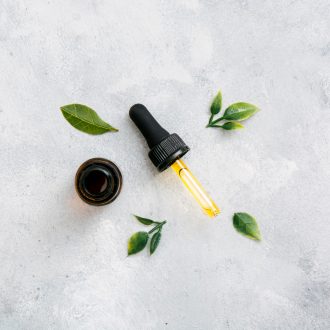- Empty cart.
- Continue Shopping
Legal Considerations When Starting a Skincare Business
Legal Considerations When Starting a Skincare Business
Launching a skincare business can be exciting, but it also involves navigating a variety of legal requirements to protect your brand, products, and customers. From registering your business to complying with safety regulations, understanding these legal considerations is crucial to avoid potential issues down the road. Here’s a comprehensive guide to the legal aspects you need to address when starting your skincare business.
1. Choose a Business Structure
- Why It’s Important: Your business structure affects everything from taxes to liability. Selecting the right structure protects you legally and financially.
- Options to Consider: Common business structures for skincare startups include:
- Sole Proprietorship: Simple to set up, but you are personally liable for business debts.
- Limited Liability Company (LLC): Offers liability protection while maintaining flexibility and fewer formalities.
- Corporation: Provides the most liability protection but involves more regulations, formalities, and paperwork.
- Partnership: Suitable if you’re starting the business with someone else; however, personal liability may be a concern.
Tip: Consult with a business attorney or accountant to determine the best structure for your skincare brand.
2. Register Your Business and Choose a Name
- Why It’s Important: Registering your business and choosing a name is a crucial legal step to establish your brand and prevent others from using the same name.
- How to Do It: Choose a unique business name that aligns with your brand identity. Conduct a trademark search to ensure the name is available and doesn’t infringe on other trademarks. Register your business name with the local government, and consider applying for a trademark to protect your brand name and logo.
Tip: A registered trademark gives you exclusive rights to your brand name and helps protect it from imitators.
3. Obtain Necessary Business Licenses and Permits
- Why It’s Important: Different locations may have specific licenses and permits required to operate a skincare business legally. Failing to obtain the proper licenses can result in fines or legal issues.
- How to Do It: Check with your local, state, or national government to determine the licenses and permits you need. Common requirements include:
- General Business License: Allows you to operate legally in your area.
- Health Permits: May be needed if you’re manufacturing skincare products in-house.
- Home Occupation Permit: Required if you’re running your business from home.
Tip: Keep copies of all licenses and permits, and renew them as required by local regulations.
4. Follow Skincare and Cosmetic Regulations
- Why It’s Important: Skincare products are subject to strict regulations to ensure consumer safety. Complying with these guidelines is crucial to avoid legal troubles and protect your customers.
- How to Do It: Research the specific regulations for your target market:
- FDA (U.S.): The Food and Drug Administration oversees cosmetics and skincare products in the U.S. Products must be safe, properly labeled, and free from harmful ingredients. Avoid making medical claims unless you seek FDA approval as a drug.
- EU Cosmetics Regulation (Europe): Requires safety assessments, ingredient transparency, and compliance with specific guidelines. Products must be tested and labeled accurately.
- Health Canada: In Canada, Health Canada regulates cosmetics under the Food and Drugs Act, requiring safety testing and proper labeling.
Tip: Work with a regulatory expert to ensure your products comply with all necessary guidelines in your target regions.
5. Test Your Products for Safety
- Why It’s Important: Testing is essential to ensure your products are safe, stable, and effective. Failing to test products can result in legal liabilities, product recalls, and harm to your brand’s reputation.
- How to Do It: Conduct stability tests to assess product shelf life under different conditions. Perform safety tests to check for allergens, skin irritation, or harmful reactions. Consider third-party lab testing for unbiased results. Keep records of all test results as proof of safety compliance.
Tip: Consult with a chemist or cosmetic lab to guide you through the testing process and meet safety standards.
6. Label Your Products Accurately
- Why It’s Important: Proper labeling is required by law and helps consumers make informed choices. Inaccurate labels can lead to fines, lawsuits, and damage to your brand.
- How to Do It: Ensure your labels include:
- Ingredients: List ingredients in descending order of concentration.
- Net Contents: State the quantity (e.g., fluid ounces or grams).
- Warnings: Include any necessary warnings or precautions.
- Manufacturer Information: Provide your company name and address.
- Product Claims: Avoid making medical claims unless the product is classified as a drug (e.g., “treats eczema” or “heals acne”).
Tip: Keep labeling guidelines in mind when designing packaging to ensure enough space for all required information.
7. Protect Your Formulas and Intellectual Property
- Why It’s Important: If you develop unique formulations or branding elements, protecting your intellectual property (IP) is essential to prevent others from copying your work.
- How to Do It: Consider legal protections for your skincare business, such as:
- Trade Secrets: Keep your formulations confidential and limit access to trusted individuals only. Use non-disclosure agreements (NDAs) when sharing details.
- Trademarks: Register your brand name, logo, slogan, and product names as trademarks for exclusive rights.
- Patents: If you create a unique formulation or innovative skincare tool, you may consider applying for a patent.
Tip: Consult with an intellectual property attorney to determine the best way to protect your brand and formulas.
8. Understand Your Liability and Product Insurance
- Why It’s Important: Selling skincare products involves risk, as customers may have allergic reactions or other issues. Liability insurance protects your business in case of lawsuits or claims.
- How to Do It: Consider the following types of insurance:
- General Liability Insurance: Covers accidents or injuries that occur on your premises.
- Product Liability Insurance: Protects against claims of harm or injury caused by your products.
- Professional Liability Insurance: Provides coverage for professional errors or claims related to your services.
Tip: Work with an insurance agent who understands the skincare industry to ensure you have adequate coverage.
9. Comply with Advertising and Marketing Guidelines
- Why It’s Important: Marketing your skincare products requires adhering to strict advertising guidelines, especially regarding product claims. Misleading or false advertising can lead to fines or lawsuits.
- How to Do It: Avoid making medical claims unless your product is FDA-approved as a drug. Use phrases like “reduces the appearance of fine lines” instead of “erases wrinkles.” Make sure any testimonials, before-and-after photos, or influencer partnerships comply with advertising guidelines and are truthful.
Tip: Always keep records of any claims you make and have scientific evidence to support them.
10. Prepare for Product Recalls (If Necessary)
- Why It’s Important: Even with proper testing, unexpected issues can arise. A product recall ensures you handle problems responsibly and maintains customer trust.
- How to Do It: Develop a recall plan that outlines the steps you’ll take if a product needs to be recalled. Notify customers, issue refunds or replacements, and remove the product from the market. Keep clear communication and transparency throughout the process.
Tip: Create a quality assurance protocol to catch potential issues early and reduce the chances of a recall.
Common Legal Challenges in the Skincare Industry and How to Overcome Them
- Ingredient Restrictions: Some countries restrict the use of certain ingredients in skincare products. Research ingredient guidelines for each target market and reformulate if necessary.
- Inaccurate Labeling: Mistakes in labeling can lead to fines. Double-check labels for compliance and accuracy before finalizing them.
- Intellectual Property Disputes: Competing brands may attempt to copy your brand or formulations. Protect your IP early and take legal action if necessary.
Benefits of Addressing Legal Considerations Early
- Minimize Risk: Handling legal matters early reduces the risk of fines, lawsuits, or product recalls.
- Builds Trust: Proper labeling, compliance, and safety measures build trust with customers and enhance your brand’s credibility.
- Protects Your Brand: Legal protections for your IP safeguard your brand’s unique identity and prevent competitors from copying your work.
- Ensures Smooth Operations: Addressing legal requirements upfront allows you to focus on growth without legal disruptions.
Conclusion: Navigating the Legal Considerations for Your Skincare Business
Launching a skincare business requires more than just creating great products. Addressing legal considerations is essential to protect your brand, customers, and future success. By understanding regulations, properly labeling your products, testing for safety, and safeguarding your intellectual property, you’ll set your skincare business up for a strong and legally compliant start. Take the time to consult with experts, stay informed about changes in the industry, and invest in the necessary legal protections.
Interested in creating your own product line? Explore our private labeling options and bring your brand vision to life. Fill out our Form to get started.
Discover more about our services by visiting our website.

